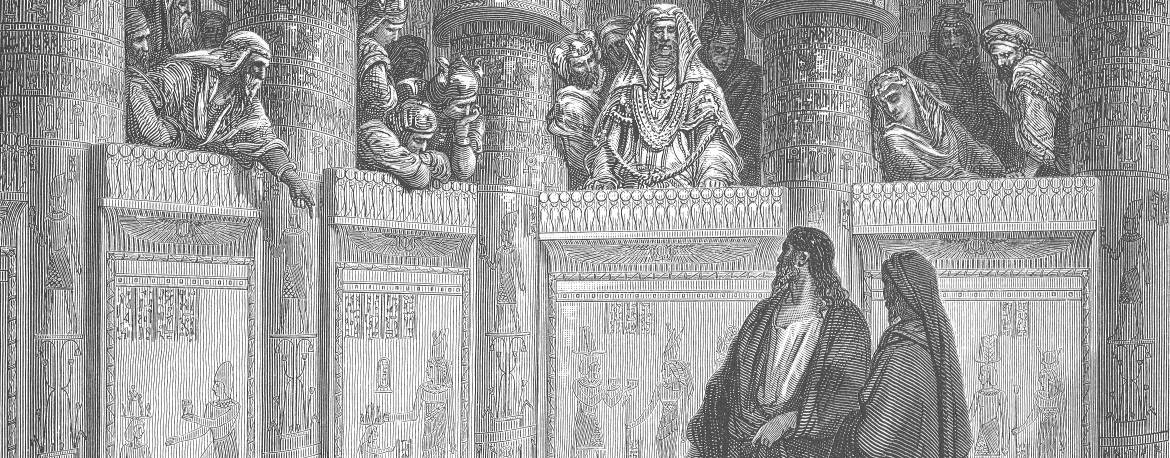Hard Hearted
By the time the promise was given to Moses, Jacob’s descendents had formed a significant population. Unfortunately, they were a population enslaved by the Egyptian Pharaoh.
God’s reiteration to Moses of the promises made to Abraham, Isaac, and Jacob were made as part of his calling Moses to return to Egypt and negotiate their departure with the Pharaoh. When Moses asked who he should say his God was, God said, “YHWH” or “I AM” (usually written “LORD”). God’s assertion of himself as the source of existence would be demonstrated in the ten plagues he would send on Egypt; each demonstrating his power over the Pharaoh and the Pharaoh’s gods.
Exodus also presents God’s authority over Pharaoh’s own heart:
I will harden Pharaoh’s heart, and though I multiply my signs and wonders in Egypt, he will not listen to you. Then I will lay my hand on Egypt and with mighty acts of judgment I will bring out my divisions, my people the Israelites. And the Egyptians will know that I am the Lord when I stretch out my hand against Egypt and bring the Israelites out of it. (Exodus 7:3-5)
Throughout the plagues, we hear variously that “Pharaoh … hardened his heart” (Ex 8:15), that “Pharaoh’s heart was hard” (Ex 8:19), and that “the Lord hardened Pharaoh’s heart” (Ex 9:12).
So, which was it? Was Pharaoh to blame?
This is essentially the question of divine sovereignty versus human free will. If God is in control of everything, how can humans make choices? If humans can choose freely, is God constrained by their actions? (The problem doesn’t go away in a godless universe; causality simply takes the plce of sovereignty.)
The question has exercised the minds of theologians and philosophers for centuries, essentially without a satisfactory answer. The Bible itself simply presents both as being true, and makes no attempt to resolve the apparent contradiction. Life itself behaves the same way: there appears to be mechanical causality, yet human beings certainly act as though the have some control over their own mind and bodies.
Most of us instinctively rebel to at least some degree against the idea of divine sovereignty; we don’t want to feel that anyone is in control of us, even God. And yet, if it must be the one or the other, perhaps it’s helpful to ask: who would you rather was in charge-a wise, all-powerful, loving God–albeit one whose ways are often mysterious to you–or you, and the people around you?
Ultimately, even Jesus was pleased to submit to the will of the Father, in full knowledge of where it would lead:
I have come down from heaven not to do my will but to do the will of him who sent me. (John 6:38)
